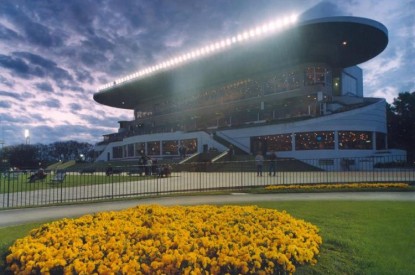Legislation
Argentina – Local Government defends The Jockey Club
By Phil - 9 July 2018
The cabinet and municipal government secretary, Alejandro Vieyra alongside The Jockey Club, which runs the Azul racecourse in the province of Buenos Aires, have come out in support of measures to ensure that the track is unaffected by changes to state subsidies.
According to Vieyra the track should be except from revisions article 29 of Law 13,253, which earmarks significant subsidies to the horse racing industry.
As the track only reopened around two years ago the local government will show its support to preserve any changes to the track. “In these two years they (The Jockey Club) did an excellent job, when they took the racecourse it was almost abandoned and today it is a place where families and people from all over the region visit,” said Vieyra.”We will make our position clear; when it comes to the Chamber of Deputies we will propose that Azul is not incorporated in the project based on solid foundations that have to do with the changes that were made to the racecourse.”
For his part, Javier Fay, President of the Jockey Club, said that it was “vital” that the track retained its status. “What worries us most is being able to maintain and keep our racecourse safe, with the management that we have been carrying out we have more than enough to show efficiency and good results.”
He also pointed out the importance of the track for the local economy as the racetrack “is a very important source of work and also money from it circulates in our city. There are 400 families making a living from the activity.”
In April, the leader of the Jockey Club defended the allocation of government revenue to the industry: “What we receive, in reality is not a subsidy, it is a Reparation Fund. The money that comes to us, is money that comes out of gaming, it is money that is taken out of what the slot machines contribute. It is not money that comes out of the taxes that we citizens of Buenos Aires pay . . . The governor what she wants to do, through a bill, is to bring that Reparation Fund to zero. ” This week Fay warned that without the help of the government the track would not be able to continue.
In 2005, the government created the Horse Racing Improvement Fund in order to give the sector a boost in the face of the proliferation of slot machines. Five per cent of the amount generated by slots in the capital goes to the fund, while 34 per cent goes to the coffers of the province of Buenos Aires. In turn, according to Provincial Law No. 13.253, the government must allocate through the Provincial Institute of Lotteries and Casinos (IPLyC) between nine per cent and fifteen per cent to the four racetracks in the province since they do not generate their own profits. At the racetracks, 60 per cent goes to the prize pool and the rest to operating expenses and infrastructure.
However this fund and the horse racing industry is now in crisis as the Governor of the province of Buenos Aires María Eugenia Vidal has announced that she will cut subsidies to horse racing tracks to zero. The government will reduce subsidies for horse racing by as much as $300m per year in its first phase and from May 2021 the horse racing industry in the province will no longer receive any state subsidies.
It is the government’s position that horse racing in the province of Buenos Aires has its own revenue sources such as betting, as well as simulating sales abroad. However, for more than ten years, the province of Buenos Aires has subsidised the activity of racetracks and subsidised different trade associations. In 2017 alone, the government allocated $1,000m to the sector, a figure that year after year is increasing and it is estimated to stand $1,300m in 2018.
Meanwhile the racetrack operators of the San Isidro and La Plata tracks in the province are lobbying the government for permission to house slot machines on their premises in order to make up for lost income. There are five racetracks in the province, which all receive annual subsidies: San Isidro ($410m), La Plata ($410m), Azul ($25m), Tandil ($ 25m) and Dolores ($18m).



